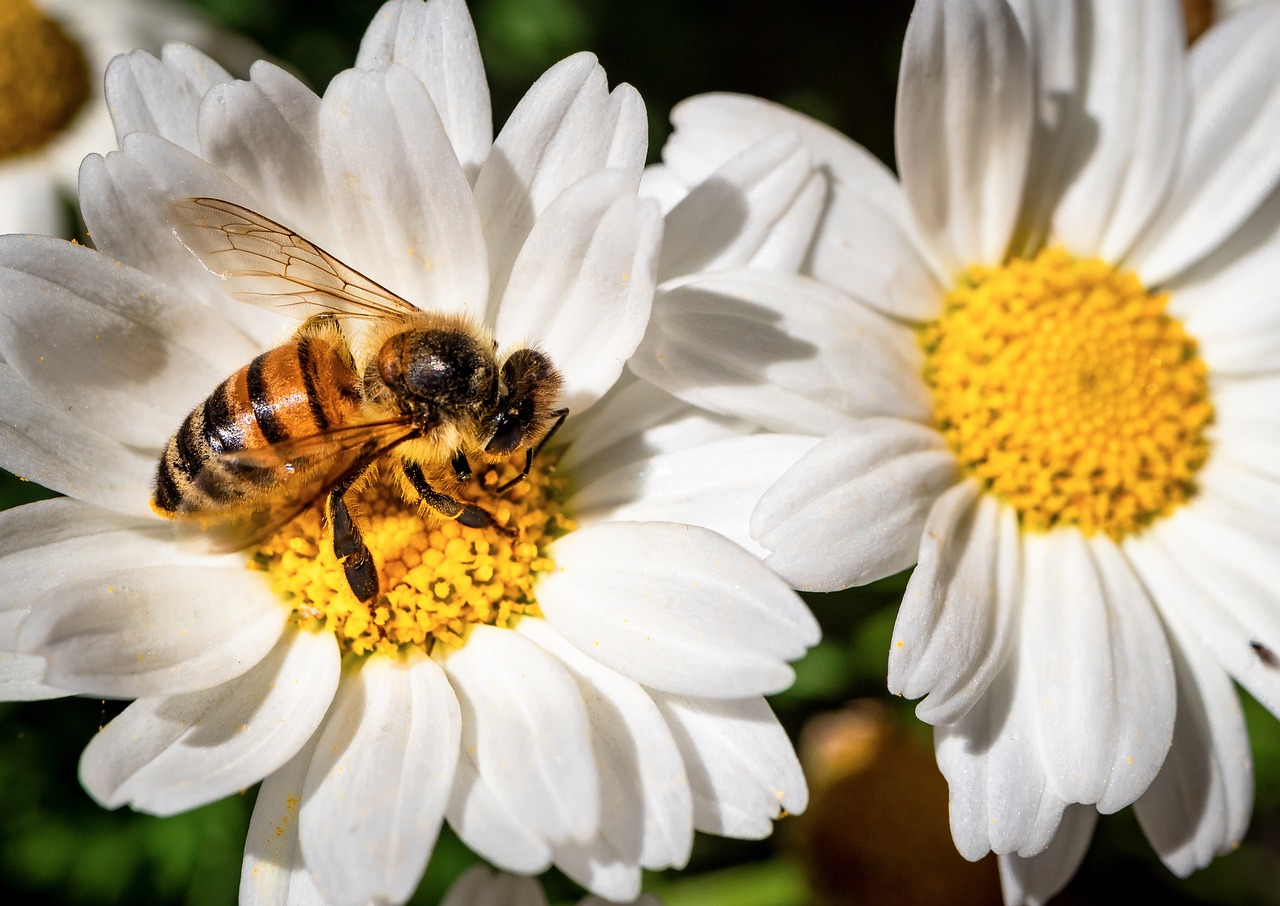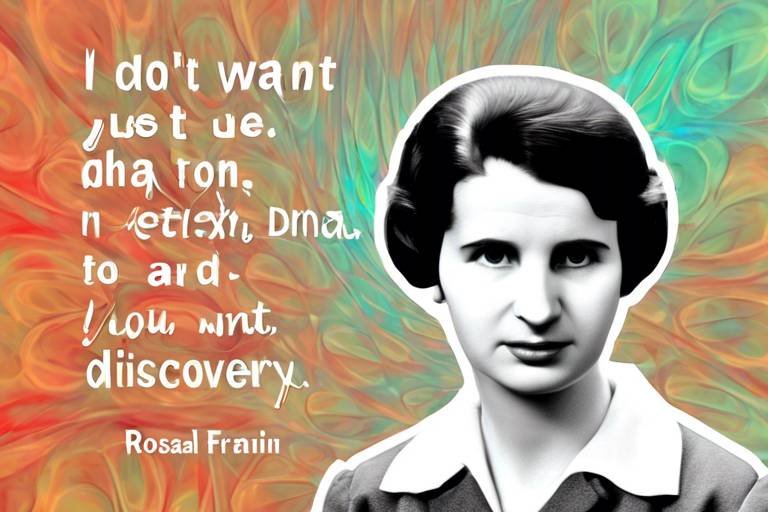The Life of Margaret Mead and Cultural Anthropology
Margaret Mead was not just an anthropologist; she was a trailblazer whose work reshaped our understanding of culture and human behavior. Born in 1901, her life unfolded against the backdrop of a rapidly changing world, filled with social upheaval and a quest for identity. Mead's journey into anthropology began with a simple yet profound question: how do cultures shape our lives? This curiosity would lead her to the far reaches of the globe, where she would immerse herself in diverse societies, documenting their intricacies and revealing the profound impact of culture on human experience.
Throughout her career, Mead challenged the prevailing notions of her time, particularly the rigid views on gender roles and the nature of adolescence. Her groundbreaking studies, particularly in Samoa, opened up new avenues of thought regarding the interplay between biology and culture. By emphasizing the role of socialization in shaping behavior, she sparked debates that continue to resonate in contemporary discussions around identity, gender, and human development.
Mead's influence extended far beyond academic circles. As a public intellectual, she engaged with the media and the public, making complex anthropological concepts accessible to everyone. Her writings, filled with vivid descriptions and relatable anecdotes, captivated audiences and encouraged them to reflect on their own cultural norms. In doing so, she not only advanced the field of anthropology but also fostered a greater awareness of the diversity of human experiences.
In essence, Margaret Mead's life and work serve as a testament to the power of cultural anthropology in exploring the human condition. Her legacy is one of curiosity, advocacy, and a relentless pursuit of understanding, making her a pivotal figure in both the academic world and the broader cultural landscape.
- What were Margaret Mead's most significant contributions to anthropology? Mead is best known for her fieldwork in Samoa, where she studied the lives of young women and their societal roles, challenging Western perceptions of adolescence.
- How did Mead's work influence gender studies? Her research highlighted how cultural norms shape gender roles, paving the way for future explorations of gender and sexuality across different societies.
- What is cultural relativism, and why is it important? Cultural relativism is the idea that a person's beliefs and activities should be understood based on that person's own culture. Mead's advocacy for this perspective encouraged a more nuanced understanding of cultural practices.
- Did Mead face criticism for her research? Yes, despite her acclaim, Mead faced critiques regarding her methodologies and conclusions, which sparked discussions on the ethics and accuracy of anthropological research.
- What is Mead's legacy today? Mead's innovative approaches and commitment to social justice continue to inspire new generations of anthropologists and activists, impacting current anthropological research and public discourse.

Early Life and Education
Margaret Mead was born on December 16, 1901, in Philadelphia, Pennsylvania, into a family that valued education and intellectual curiosity. Her mother, a sociologist, and her father, a teacher, instilled in her a profound appreciation for learning and an inquisitive spirit. Growing up in such an environment, it was only natural for Mead to develop a keen interest in understanding human behavior and cultural dynamics.
Mead's educational journey began at Barnard College, where she pursued a degree in sociology and anthropology. This institution was a melting pot of ideas, and it played a pivotal role in shaping her academic perspective. She was influenced by prominent figures such as Franz Boas, often referred to as the father of American anthropology. Boas's teachings emphasized the importance of fieldwork and cultural relativism, which would become cornerstones of Mead's own research philosophy.
After completing her undergraduate studies, Mead continued her education at Columbia University, where she earned her master's degree and later her Ph.D. Her time at Columbia was marked by rigorous academic training and exposure to diverse anthropological theories. It was during this period that she honed her skills in ethnographic research, preparing her for the groundbreaking fieldwork that would follow.
Mead's early experiences and education laid a solid foundation for her future contributions to anthropology. She was not just a student of culture; she became a passionate advocate for understanding societies through their unique lenses. Her education was not merely about acquiring knowledge; it was about embracing the complexities of human life and the myriad ways in which culture shapes our identities.
In summary, Margaret Mead's early life and educational background were instrumental in shaping her as a pioneering anthropologist. Her commitment to understanding cultural nuances and her innovative approach to research would eventually challenge prevailing notions of human behavior and identity. As we delve deeper into her fieldwork and theoretical contributions, it's essential to recognize how her formative years influenced her groundbreaking insights.

Fieldwork in Samoa
Margaret Mead's fieldwork in Samoa during the late 1920s marked a pivotal moment in the field of cultural anthropology. This expedition was not just a journey to a distant land; it was a deep dive into the complexities of human behavior and social structures that challenged the prevailing Western notions of adolescence. When Mead arrived in Samoa, she was greeted by a culture that was vastly different from her own, and she embraced this difference with open arms. Her goal was to understand how the Samoan way of life shaped the identities and behaviors of its young people, particularly young women.
Mead's observations in Samoa were groundbreaking. She spent considerable time living among the Samoan people, engaging with them, and observing their daily lives. This immersive approach allowed her to gather rich, qualitative data that would later serve as the foundation for her influential work, "Coming of Age in Samoa." In this book, she argued that the tumultuous period of adolescence, often fraught with anxiety and rebellion in Western cultures, was experienced quite differently in Samoa. Here, young women transitioned into adulthood with relative ease, supported by a community that celebrated their growth rather than stigmatized it.
One of the most striking aspects of Mead's findings was her emphasis on the role of culture in shaping individual experiences. She noted that the Samoan society placed a strong emphasis on communal living and collective support, which contributed to a more harmonious transition into adulthood. In contrast, she highlighted how Western societies often impose rigid expectations and pressures on adolescents, leading to conflict and stress. This observation sparked a significant debate about the influences of nature versus nurture in human development, encouraging many to reconsider how much of our behavior is shaped by cultural context.
Mead meticulously documented various aspects of Samoan life, including their social structures, rituals, and the roles of women within the community. Her work revealed that the experiences of young women in Samoa were not merely a reflection of biological age but were deeply intertwined with cultural practices and societal norms. For instance, she observed that the lack of strict sexual mores in Samoan culture allowed young women to explore their identities freely, contrasting sharply with the often oppressive expectations faced by their Western counterparts.
Through her fieldwork, Mead effectively illustrated the importance of cultural context in understanding human behavior. Her findings not only challenged the assumptions of her time but also provided a framework for future anthropologists to explore the nuances of gender and identity across different cultures. This revolutionary perspective encouraged a more empathetic and informed approach to studying human societies, promoting the idea that there is no single way to experience adolescence or adulthood.
In summary, Margaret Mead's fieldwork in Samoa was not just an academic endeavor; it was a profound exploration of what it means to grow up in a different cultural milieu. Her insights continue to resonate today, urging us to reconsider our preconceived notions about human behavior and the myriad ways culture shapes our lives.

Key Findings from Samoa
Margaret Mead's fieldwork in Samoa was nothing short of groundbreaking, as it unearthed a treasure trove of insights about the complexities of adolescence and the profound impact of culture on individual development. Through her immersive experience, Mead documented the lives of young women in a society markedly different from her own. What she found was a compelling narrative that challenged the prevailing Western notions of adolescence as a tumultuous phase filled with angst and rebellion. Instead, she painted a picture of Samoan youth characterized by a sense of ease and community support.
One of Mead's most significant revelations was the role of cultural context in shaping behavior and identity. She observed that Samoan girls experienced a far less stressful transition into adulthood compared to their American counterparts. This led her to propose that cultural norms and expectations play a crucial role in emotional and psychological development. To illustrate this point, Mead highlighted several key aspects of Samoan life:
- Social Structure: The communal nature of Samoan society fostered strong familial bonds and support systems, which alleviated the pressures typically associated with growing up.
- Rites of Passage: Unlike the often chaotic and individualized experiences in Western cultures, Samoan adolescents underwent collective rites of passage that celebrated their transition into adulthood.
- Gender Roles: Mead noted that gender roles in Samoa were fluid and less rigid, allowing for a more nuanced understanding of femininity and masculinity.
These findings not only challenged the ethnocentric views held by many in the West but also opened up new avenues for understanding the interplay between culture and individual behavior. Mead's work emphasized that the experiences of young women in Samoa were not merely anecdotal; they were reflections of a broader cultural narrative that could inform our understanding of human development globally.
Moreover, her research sparked a significant debate surrounding the nature versus nurture discourse. By presenting evidence that cultural factors significantly influence personal development, Mead encouraged scholars and the public alike to reconsider how we view adolescence. Instead of viewing it as a universal experience, she urged us to appreciate the diversity of cultural practices and their implications for human behavior.
In summary, Margaret Mead's key findings from Samoa not only enriched the field of anthropology but also provided valuable insights that continue to resonate in discussions about gender, culture, and identity today. Her ability to challenge established norms and provoke thought has left an indelible mark on both academic and public spheres, ensuring that her legacy endures in the ongoing exploration of human societies.

Impact on Gender Studies
Margaret Mead's groundbreaking research in Samoa not only reshaped the field of anthropology but also had a profound . By documenting the lives of young women in a culture vastly different from her own, Mead challenged the prevailing Western notions of gender roles and expectations. Her work illuminated how culture plays a pivotal role in shaping identities, behaviors, and societal norms.
One of the most striking aspects of Mead's findings was her observation of the relatively liberated status of women in Samoan society compared to their Western counterparts. She found that young women in Samoa experienced a level of freedom and autonomy that was often stifled in the West. This revelation sparked a significant shift in the understanding of gender roles, prompting scholars and activists alike to reconsider the cultural constructs of femininity and masculinity.
Mead's work laid the groundwork for future explorations of gender and sexuality, encouraging subsequent researchers to delve deeper into the ways culture influences gender norms. For instance, her findings led to questions such as:
- How do different cultures define masculinity and femininity?
- In what ways do societal expectations shape individual identities?
- What role does culture play in the construction of gender roles?
Moreover, Mead's emphasis on the importance of context in understanding gender dynamics has become a cornerstone of gender studies. Her assertion that gender is not merely a biological given but a social construct paved the way for feminist anthropologists to explore the intersections of gender, race, and class. By advocating for a more nuanced approach to gender analysis, Mead inspired a generation of scholars to challenge traditional narratives and embrace a more inclusive understanding of human experiences.
In summary, Margaret Mead's contributions to gender studies cannot be overstated. Her pioneering research not only enriched the field of anthropology but also sparked essential conversations about the fluidity of gender and the impact of culture on identity. Today, her legacy lives on as scholars continue to build upon her work, exploring the complexities of gender in diverse cultural contexts.
1. What was Margaret Mead's main contribution to gender studies?
Mead's main contribution was her groundbreaking fieldwork in Samoa, where she documented the lives of young women, highlighting the cultural influences on gender roles and challenging Western norms.
2. How did Mead's work influence contemporary gender studies?
Her emphasis on cultural relativism and the social construction of gender has encouraged modern scholars to explore the complexities of gender identity and the role of culture in shaping gender norms.
3. What are some criticisms of Mead's research?
Critics have questioned the validity of her observations and the generalizations she made, prompting discussions about the ethics and accuracy of anthropological research.
4. How does Mead's legacy continue to impact anthropology today?
Mead's commitment to understanding cultures on their terms and her advocacy for social justice continue to inspire new generations of anthropologists and activists.

Critiques of Mead's Research
Margaret Mead's groundbreaking work, particularly her studies in Samoa, has not been without its share of criticism. While many celebrate her contributions to cultural anthropology, others have raised valid concerns regarding her methods and interpretations. One of the primary critiques revolves around the validity of her observations. Critics argue that Mead's conclusions were based on a limited sample size and that her interactions with the Samoan people may have been influenced by her own biases and expectations.
Furthermore, some anthropologists have questioned the accuracy of her data collection techniques. For instance, her reliance on informal interviews and her subjective interpretations of cultural practices have been scrutinized. Critics like Clifford Geertz have pointed out that Mead's approach lacked the rigorous ethnographic detail that is often necessary for a comprehensive understanding of a culture. This has led to debates about whether her findings can be generalized beyond the specific contexts she studied.
Moreover, the implications of her work have sparked discussions about the ethics of anthropological research. The nature versus nurture debate, which Mead's findings significantly influenced, has been revisited with a more critical lens. Critics argue that her portrayal of Samoan society as a model of sexual freedom and lack of adolescent turmoil oversimplified the complexities of cultural experiences. This has led to accusations of cultural romanticism, where Mead's idealized representation of Samoan life may have overshadowed the actual challenges faced by its people.
In light of these critiques, it is essential to recognize that while Mead's work has been influential, it also serves as a case study in the importance of methodological rigor and ethical considerations in anthropology. Her legacy prompts contemporary anthropologists to reflect on their practices and ensure that they approach cultures with a more nuanced understanding. In doing so, they can avoid the pitfalls that Mead encountered and strive for a more accurate representation of the diverse tapestry of human societies.
Despite these criticisms, Mead's influence on the field remains profound. Her work has sparked ongoing debates and discussions that continue to shape the discipline of anthropology. As we analyze her contributions, it becomes clear that the dialogue surrounding her research is as significant as the findings themselves, encouraging future generations to critically engage with cultural studies.
- What were the main criticisms of Margaret Mead's research? Critics have questioned the validity of her observations, the accuracy of her data collection methods, and the ethical implications of her work.
- How did Mead's work influence gender studies? Mead's findings highlighted the impact of cultural norms on gender roles, paving the way for future research in gender studies.
- What is cultural relativism, and how did Mead contribute to it? Cultural relativism is the idea of understanding cultures on their own terms. Mead advocated for this perspective, encouraging anthropologists to appreciate diverse cultural practices without judgment.
- Why is Mead's work still relevant today? Mead's innovative approaches and commitment to social justice continue to resonate in contemporary anthropological research and activism.

Contributions to American Anthropology
Margaret Mead's contributions to American anthropology are nothing short of monumental. She didn't just participate in the field; she actively reshaped its landscape. Her work was characterized by a unique blend of rigorous research and a passionate commitment to applying anthropological insights to real-world issues. Mead's voice became a beacon for understanding the complexities of human societies, and she used her platform to advocate for social change.
One of the most significant aspects of Mead's contributions was her ability to bridge the gap between academic anthropology and the general public. Through her books, lectures, and media appearances, she made anthropology accessible and relevant to everyday people. Her most famous work, Coming of Age in Samoa, not only challenged prevailing notions about adolescence but also sparked widespread interest in cultural anthropology as a discipline. This book was more than just a study; it was a call to examine societal norms and question the status quo.
Mead's influence extended beyond her fieldwork. She became a prominent figure in public discussions about gender, race, and culture, arguing that understanding these issues through an anthropological lens could lead to more informed and compassionate policies. Her advocacy for cultural relativism—understanding cultures on their own terms—transformed how anthropologists approached their work. This perspective encouraged a more empathetic and nuanced understanding of diverse cultural practices, which became foundational in contemporary anthropology.
Moreover, Mead's role as a mentor to younger anthropologists cannot be overstated. She inspired a generation of scholars to explore new avenues of research and to engage with the pressing social issues of their time. Her dedication to teaching and her willingness to share her insights helped cultivate a rich academic environment that prioritized both research and activism.
In summary, Margaret Mead's contributions to American anthropology are characterized by her innovative research, public engagement, and commitment to social justice. Her legacy lives on, influencing not only anthropologists but also a broader audience interested in understanding the complexities of human behavior and culture.
- What was Margaret Mead's most famous work?
Mead's most famous work is Coming of Age in Samoa, which explores the lives of young women in Samoa and challenges Western notions of adolescence.
- How did Mead influence gender studies?
Her research highlighted the cultural constructs of gender roles, showing how societal norms shape individual identities and experiences.
- What is cultural relativism?
Cultural relativism is the idea that a person's beliefs and practices should be understood based on that person's own culture, rather than be judged against the criteria of another culture.
- Did Mead face criticism for her work?
Yes, Mead faced criticism regarding her methods and conclusions, particularly about the validity of her observations in Samoa, which sparked important discussions about anthropological ethics.

Mead's Theoretical Perspectives
Margaret Mead was not just a fieldworker; she was a profound thinker whose theoretical perspectives reshaped the landscape of cultural anthropology. One of her most significant contributions was her emphasis on cultural relativism. This concept encourages anthropologists and social scientists to understand cultures on their own terms, rather than through the lens of their own cultural biases. Imagine trying to appreciate a painting without understanding the artist's background; it’s nearly impossible to grasp its full meaning and significance. Similarly, Mead argued that to truly understand a society, one must immerse themselves in its unique cultural context.
Mead's advocacy for cultural relativism was revolutionary at the time. She believed that no culture is superior to another, and that each culture has its own set of values and norms that are valid within its context. This perspective challenged the ethnocentric views that were prevalent in her day, where Western norms were often seen as the gold standard. By promoting a more nuanced approach to cultural analysis, Mead paved the way for future anthropologists to explore the rich tapestry of human experience without judgment.
In her work, Mead also highlighted the importance of understanding the dynamic nature of culture. Cultures are not static; they evolve and adapt over time. This idea is akin to a river that flows and changes course, influenced by various factors such as environment, technology, and social interactions. Mead's insights encouraged anthropologists to consider how cultural practices and beliefs are shaped by historical and social contexts, rather than viewing them as fixed entities.
Furthermore, Mead's theoretical frameworks extended to the study of gender roles and identity. She argued that gender is not solely a biological construct but is heavily influenced by cultural norms and expectations. This perspective opened up new avenues for research in gender studies, prompting scholars to investigate how different societies define and experience gender. For instance, in her studies, she observed how Samoan girls navigated their identities in a culture that offered them a different set of expectations compared to their Western counterparts.
Mead's emphasis on the significance of cultural context and her challenge to ethnocentric perspectives have left a lasting impact on anthropology. Her work serves as a reminder that to understand human behavior, we must consider the intricate web of cultural influences that shape our lives. As contemporary anthropologists continue to grapple with complex social issues, Mead's theoretical perspectives remain a guiding light, encouraging a deeper and more empathetic understanding of the diverse cultures that populate our world.
- What is cultural relativism?
Cultural relativism is the practice of evaluating a culture based on its own values and beliefs rather than judging it through the lens of another culture.
- How did Margaret Mead influence gender studies?
Mead's research highlighted how cultural norms shape gender roles, paving the way for future explorations of gender and sexuality in various societies.
- What are some criticisms of Mead's work?
Critics have questioned the validity of her observations and methods, prompting discussions about the ethics and accuracy of anthropological research.

Cultural Relativism
Cultural relativism is a cornerstone of Margaret Mead's anthropological philosophy, advocating for the understanding of cultures on their own terms rather than through the lens of one's own cultural biases. This concept challenges the ethnocentric view that often pervades Western thought, where behaviors and practices are judged against a singular cultural standard. Instead, Mead encouraged a more open-minded approach, suggesting that we should appreciate the diversity of human experiences and recognize that each culture has its own unique context and value system.
In her work, Mead illustrated that cultural practices, beliefs, and social norms vary widely across different societies. For instance, what may be considered taboo in one culture could be a normal practice in another. This realization fosters a sense of empathy and understanding among people from different backgrounds. By embracing cultural relativism, anthropologists and social scientists can better analyze human behavior without imposing their own values, leading to richer insights into the complexities of human societies.
Mead's emphasis on cultural relativism has significant implications for various fields beyond anthropology, including sociology, psychology, and even international relations. It encourages individuals to:
- Recognize the validity of different cultural practices.
- Engage in meaningful dialogues that promote mutual respect.
- Challenge stereotypes and assumptions about other cultures.
Moreover, cultural relativism plays a crucial role in contemporary discussions about globalization and multiculturalism. As the world becomes increasingly interconnected, understanding and respecting diverse cultural perspectives is vital for fostering cooperation and harmony among nations. Mead's legacy in promoting this perspective continues to resonate, reminding us that cultural differences should be seen as opportunities for learning rather than barriers to understanding.
In summary, cultural relativism, as championed by Margaret Mead, is not just an academic concept; it is a powerful tool for fostering understanding and respect in a diverse world. By appreciating the rich tapestry of human culture, we can move towards a more inclusive society where every voice is valued and heard.
Q1: What is cultural relativism?
A1: Cultural relativism is the idea that a person's beliefs and activities should be understood based on that person's own culture, rather than be judged against the criteria of another culture.
Q2: Why is cultural relativism important in anthropology?
A2: It allows anthropologists to study cultures objectively, without imposing their own cultural biases, leading to a deeper understanding of human behavior and social practices.
Q3: How did Margaret Mead contribute to the concept of cultural relativism?
A3: Mead's research emphasized the importance of understanding cultures in their unique contexts, challenging ethnocentric views and advocating for appreciation of cultural diversity.
Q4: Can cultural relativism lead to moral ambiguity?
A4: While cultural relativism promotes understanding, it can sometimes lead to debates over ethical standards, as it may challenge universal human rights concepts. However, it encourages dialogues about these issues rather than outright dismissal.

Influence on Future Generations
Margaret Mead's influence on future generations of anthropologists is nothing short of profound. She not only paved the way for the field of cultural anthropology but also inspired countless individuals to explore the rich tapestry of human societies. Her innovative methodologies and bold ideas challenged the status quo, encouraging new scholars to venture into uncharted territories of research. Mead's work serves as a beacon for those who seek to understand the complexities of culture, identity, and social behavior.
One of the most significant aspects of Mead's legacy is her unwavering commitment to social justice. She believed that anthropology should not be confined to academic circles but should actively engage with pressing societal issues. This belief has resonated with many contemporary anthropologists who strive to apply their research to real-world problems, such as gender inequality, racial discrimination, and environmental challenges. Mead's ability to communicate complex ideas in an accessible manner has empowered future generations to advocate for change and to use their anthropological insights to contribute to public discourse.
Additionally, Mead's emphasis on cultural relativism has become a cornerstone in anthropological studies. By encouraging researchers to appreciate and understand cultures on their own terms, she fostered an environment where diversity is celebrated rather than judged. This perspective has led to a more inclusive approach in anthropology, inspiring scholars to explore various cultural practices without the lens of ethnocentrism. As a result, today's anthropologists are more equipped to address global issues with empathy and understanding.
Moreover, Mead's groundbreaking studies, particularly her fieldwork in Samoa, continue to spark debates and discussions in academic circles. Her findings challenge traditional notions of adolescence and gender roles, prompting new research that builds upon her work. Many modern anthropologists draw inspiration from her methodologies, employing similar fieldwork techniques to gain insights into contemporary societies. The ripple effect of her studies can be seen in various disciplines, including sociology, psychology, and gender studies, where her ideas have been adapted and expanded.
In essence, Margaret Mead's legacy is not just confined to her own research; it lives on in the hearts and minds of future anthropologists who strive to carry her torch. They are inspired by her passion for understanding humanity, her dedication to social justice, and her belief in the power of cultural understanding. As they navigate the complexities of modern society, they do so with the foundational ideas that Mead so passionately championed, ensuring that her influence will continue to shape the field of anthropology for generations to come.
- What were Margaret Mead's most significant contributions to anthropology?
Mead's most significant contributions include her pioneering fieldwork in Samoa, her studies on gender roles, and her advocacy for cultural relativism. - How did Mead's work influence gender studies?
Her research highlighted the impact of cultural norms on gender roles, paving the way for future explorations of gender and sexuality. - What is cultural relativism, and why is it important?
Cultural relativism is the practice of understanding cultures on their own terms without judgment. It is crucial for promoting empathy and reducing ethnocentrism in research. - How can Mead's legacy be seen in modern anthropology?
Mead's legacy is evident in the commitment to social justice, the use of inclusive methodologies, and the focus on understanding diverse cultural practices among contemporary anthropologists.

Public Engagement and Legacy
Margaret Mead was not just an anthropologist confined to the dusty halls of academia; she was a vibrant public intellectual who brought the complexities of cultural anthropology into the everyday conversations of the American public. Her ability to articulate intricate cultural concepts in a relatable manner allowed her to connect with a diverse audience, making her work accessible to those outside the academic sphere. She wrote extensively for popular magazines, participated in radio and television programs, and even contributed to documentaries, effectively becoming a household name. Through these platforms, Mead championed the importance of understanding cultural differences and encouraged dialogue about pressing social issues.
One of her most significant contributions was her focus on the role of culture in shaping human behavior. She argued that culture is not a mere backdrop but a dynamic force that influences our thoughts, actions, and identities. This perspective was particularly crucial during the mid-20th century, a time when American society was grappling with issues of race, gender, and identity. Mead's insights helped pave the way for a more inclusive understanding of these topics, encouraging people to look beyond their own cultural lenses. She often stated, "We are all the products of our cultures," emphasizing the need for empathy and understanding in a rapidly changing world.
Mead's legacy is evident in the ongoing discussions around cultural relativism and the importance of context in anthropology. Her work inspired subsequent generations of anthropologists to engage with communities respectfully and ethically, fostering a more nuanced approach to research. Even today, her ideas resonate within the fields of gender studies, sociology, and psychology, proving that her influence transcends the boundaries of anthropology.
Moreover, Mead's public engagement extended to her involvement in various social movements. She was an outspoken advocate for women's rights and played a pivotal role in the sexual revolution of the 1960s. Her research on gender roles and sexuality challenged traditional norms, encouraging a reevaluation of societal expectations. This advocacy work not only solidified her status as a key figure in anthropology but also as a champion for social change.
In recognition of her contributions, numerous institutions and awards have been established in her name. The Margaret Mead Film Festival, for example, celebrates documentary films that reflect her commitment to cultural understanding and social justice. Furthermore, her writings continue to be studied and revered, ensuring that her voice remains an integral part of cultural discourse. Mead's legacy serves as a reminder of the power of anthropology to inform public policy, foster understanding, and promote social change.
- What was Margaret Mead's main contribution to anthropology?
Mead's primary contribution was her emphasis on the impact of culture on human behavior, particularly through her groundbreaking fieldwork in Samoa, which challenged Western notions of adolescence and gender roles. - How did Margaret Mead engage with the public?
Mead engaged with the public through her writings in popular magazines, appearances on radio and television, and participation in documentaries, making complex cultural topics accessible to a broader audience. - What is cultural relativism, and why is it important?
Cultural relativism is the idea that a person's beliefs and practices should be understood based on their own culture rather than be judged against the criteria of another culture. This concept is vital for fostering empathy and understanding in a diverse world. - What impact did Mead have on gender studies?
Mead's research illustrated how cultural norms shape gender roles, significantly influencing the field of gender studies and opening doors for further exploration of gender and sexuality across various societies.
Frequently Asked Questions
- Who was Margaret Mead?
Margaret Mead was a pioneering cultural anthropologist whose work significantly influenced the field of anthropology and our understanding of human societies. She is best known for her studies on adolescence and gender roles, particularly through her fieldwork in Samoa.
- What were the key findings from Mead's research in Samoa?
In her groundbreaking study in Samoa, Mead discovered that cultural factors played a crucial role in shaping the experiences of young women. She highlighted how societal norms and values influenced their identities and behaviors, challenging the Western notions of adolescence as a universally tumultuous period.
- How did Margaret Mead impact gender studies?
Mead's work significantly advanced gender studies by illustrating how cultural contexts shape gender roles. Her findings encouraged further exploration of gender and sexuality across different societies, emphasizing the importance of cultural influences over biological determinism.
- What criticisms did Mead face regarding her research?
Despite her influential contributions, Mead faced criticism about her research methods and conclusions. Some critics questioned the validity of her observations and the ethics of her fieldwork, sparking discussions about the accuracy and integrity of anthropological research.
- What is cultural relativism, and how did Mead contribute to this concept?
Cultural relativism is the idea that cultures should be understood on their own terms without ethnocentric judgment. Mead advocated for this perspective, promoting an appreciation of diverse cultural practices, which remains a foundational principle in contemporary anthropology and social sciences.
- How did Mead engage with the public outside of academia?
Margaret Mead was not just an academic; she was a prolific writer and speaker who engaged with the public on various cultural issues. Her ability to communicate complex anthropological concepts in accessible ways helped solidify her status as a key figure in 20th-century anthropology.
- What is Margaret Mead's legacy today?
Mead's legacy continues to inspire new generations of anthropologists and social scientists. Her innovative approaches, commitment to social justice, and advocacy for cultural understanding resonate in current research and activism, ensuring her influence endures in the field.



















